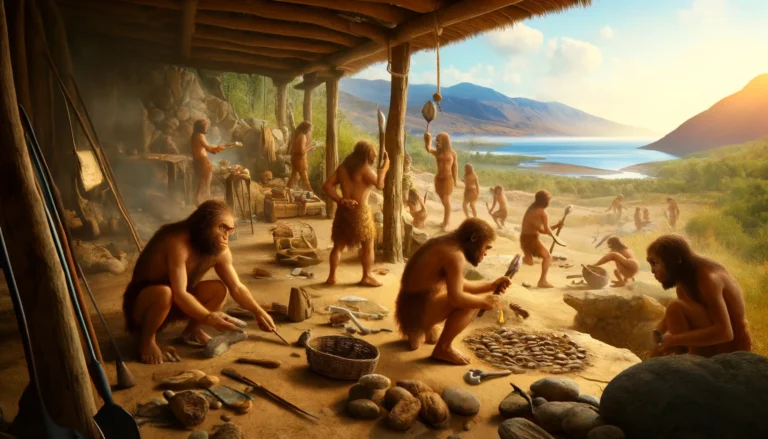Why is Homo habilis the “handy man?”
They were the first to wield tools, sparking a cognitive revolution that forever altered the course of life on Earth. With ingenious minds and dexterous hands, they paved the way for the development of complex societies, cultures, and technologies. They are the first known species to venture beyond the confines of pure instinct. Flourishing about 2.4 to 1.4 million years ago, this species is credited with being the earliest to show evidence of using stone tools that survived the test of time.
For sure, Homo habilis also utilized other natural resources they could pick up off the ground, such as hand sticks for poking and defense, walking sticks perhaps sharpened at one end for protection and hunting, and small sharpened sticks for detailed work. Around this time, perhaps the first spears and digging sticks were crafted, essential for hunting larger animals at a distance and for accessing water sources, tubers, or creating simple traps. These tools weren’t just crude implements; they represented a fundamental shift in how early humans interacted with their environment, enabling them to cut, scrape, and process food in new ways that likely influenced their diet, survival, and social dynamics. For a new look at what happened to our ancient human species, take the deep dive: A New Look at Human Extinction Events: From Homo habilis to the Neanderthals.









